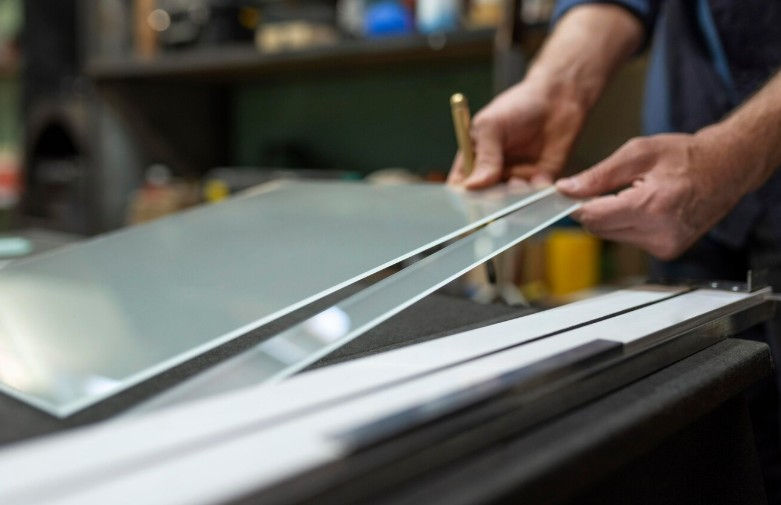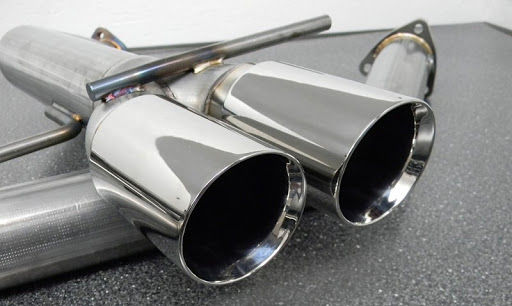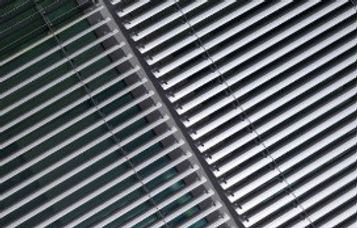ALUMINIUM
ALUMINIUM
We are an experienced aluminum supplier and contractor in Malaysia, offering a wide range of aluminum products for construction, manufacturing, architectural, and structural applications. From aluminum sheets, panels, claddings to customized extrusions, our materials can be tailored to your project’s exact needs in terms of thickness, length, shape, and finish. Whether you're working on interior designs, building facades, frameworks, or machinery parts, aluminum provides excellent strength-to-weight ratio, corrosion resistance, and long-term durability. Choosing the right aluminum product ensures the quality, safety, and performance of your end result — and that’s exactly what we deliver.

WHAT IS ALUMINIUM?








Aluminium is a strong, lightweight, and corrosion-resistant metal that plays a crucial role in countless industries, from construction and architecture to automotive, aerospace, and electronics. Weighing approximately one-third as much as steel, aluminium offers an outstanding strength-to-weight ratio, especially when alloyed with elements like magnesium, silicon, or zinc. Its malleability makes it easy to shape into complex forms, while its natural resistance to rust and oxidation eliminates the need for extensive surface treatments.
Thanks to its exceptional durability and low maintenance requirements, aluminium is widely used for both interior and exterior applications — including facades, cladding, doors, windows, structural frameworks, roofing, and decorative panels. Its sleek, modern appearance enhances aesthetics, while its thermal and acoustic properties contribute to energy-efficient design. Furthermore, aluminium is 100% recyclable without loss of quality, making it one of the most environmentally sustainable building materials available today. With a long service life, design flexibility, and excellent performance in harsh weather conditions, aluminium remains a top choice for modern projects that demand both function and form.
WHAT IS ALUMINIUM?








Aluminium is a strong, lightweight, and corrosion-resistant metal that plays a crucial role in countless industries, from construction and architecture to automotive, aerospace, and electronics. Weighing approximately one-third as much as steel, aluminium offers an outstanding strength-to-weight ratio, especially when alloyed with elements like magnesium, silicon, or zinc. Its malleability makes it easy to shape into complex forms, while its natural resistance to rust and oxidation eliminates the need for extensive surface treatments.
Thanks to its exceptional durability and low maintenance requirements, aluminium is widely used for both interior and exterior applications — including facades, cladding, doors, windows, structural frameworks, roofing, and decorative panels. Its sleek, modern appearance enhances aesthetics, while its thermal and acoustic properties contribute to energy-efficient design. Furthermore, aluminium is 100% recyclable without loss of quality, making it one of the most environmentally sustainable building materials available today. With a long service life, design flexibility, and excellent performance in harsh weather conditions, aluminium remains a top choice for modern projects that demand both function and form.






ALUMINIUM SHEET
Aluminium sheets are flat-rolled panels widely used in architectural, construction, and industrial applications, including cladding, signage, ceilings, column covers, and building façades. These sheets come in a variety of grades and surface finishes, such as anodised, brushed, mill-finish, and powder-coated, to suit different design requirements and environmental conditions. Known for their excellent corrosion resistance, uniform appearance, and ease of fabrication, aluminium sheets are lightweight yet structurally reliable. Their formability allows for complex shaping without compromising strength, making them a preferred material for both functional and decorative uses in modern architecture.






ALUMINIUM SHEET
Aluminium sheets are flat-rolled panels widely used in architectural, construction, and industrial applications, including cladding, signage, ceilings, column covers, and building façades. These sheets come in a variety of grades and surface finishes, such as anodised, brushed, mill-finish, and powder-coated, to suit different design requirements and environmental conditions. Known for their excellent corrosion resistance, uniform appearance, and ease of fabrication, aluminium sheets are lightweight yet structurally reliable. Their formability allows for complex shaping without compromising strength, making them a preferred material for both functional and decorative uses in modern architecture.








ALUMINIUM EXTRUSION
Aluminium extrusions are specially formed profiles created by forcing heated aluminium through a precision die, resulting in consistent cross-sectional shapes tailored for specific uses. This process allows for a high level of customization, enabling architects, engineers, and manufacturers to design components that meet exact performance and aesthetic requirements.
These extrusions are widely used in the construction and manufacturing industries, particularly in window and door frames, curtain walls, partitions, industrial enclosures, and various structural systems. Due to aluminium’s light weight, excellent corrosion resistance, and high strength-to-weight ratio, extruded profiles are ideal for both functional and decorative purposes. They not only contribute to the structural integrity of a building or product but also enhance its visual appeal.
Furthermore, aluminium extrusions can be easily fabricated, cut, machined, and finished to fit diverse applications. Whether for modern architectural façades or complex industrial assemblies, aluminium extrusions offer cost-effective and sustainable solutions without compromising durability or performance.








ALUMINIUM EXTRUSION
Aluminium extrusions are specially formed profiles created by forcing heated aluminium through a precision die, resulting in consistent cross-sectional shapes tailored for specific uses. This process allows for a high level of customization, enabling architects, engineers, and manufacturers to design components that meet exact performance and aesthetic requirements.
These extrusions are widely used in the construction and manufacturing industries, particularly in window and door frames, curtain walls, partitions, industrial enclosures, and various structural systems. Due to aluminium’s light weight, excellent corrosion resistance, and high strength-to-weight ratio, extruded profiles are ideal for both functional and decorative purposes. They not only contribute to the structural integrity of a building or product but also enhance its visual appeal.
Furthermore, aluminium extrusions can be easily fabricated, cut, machined, and finished to fit diverse applications. Whether for modern architectural façades or complex industrial assemblies, aluminium extrusions offer cost-effective and sustainable solutions without compromising durability or performance.










ALUMINIUM COIL
Aluminium coils are flat-rolled sheets of aluminium supplied in continuous roll form, designed to streamline handling, storage, and automated fabrication. Their flexibility and adaptability make them highly sought after in a wide range of industries. These coils are commonly used in architectural applications such as roofing, wall cladding, ceiling panels, and insulation jackets. In manufacturing, aluminium coils serve as the base material for producing aluminium composite panels (ACP), ducting systems, signage, and decorative finishes.
One of the key advantages of aluminium coils is their excellent strength-to-weight ratio, which allows for durable yet lightweight construction. Their corrosion resistance makes them suitable for both indoor and outdoor environments, especially in humid or coastal areas. Coils can be easily cut, formed, coated, or embossed, offering versatility in appearance and performance. They are compatible with various coating systems, including PVDF and polyester finishes, enabling vibrant colours and long-lasting protection.
Aluminium coils also contribute to operational efficiency in large-scale production lines. Their continuous format allows for uninterrupted processing, resulting in higher output and consistent product quality. Available in a variety of widths, thicknesses, tempers, and surface finishes (mill finish, stucco embossed, colour coated, etc.), aluminium coils can be tailored to meet specific project requirements across construction, automotive, packaging, and HVAC sectors.










ALUMINIUM COIL
Aluminium coils are flat-rolled sheets of aluminium supplied in continuous roll form, designed to streamline handling, storage, and automated fabrication. Their flexibility and adaptability make them highly sought after in a wide range of industries. These coils are commonly used in architectural applications such as roofing, wall cladding, ceiling panels, and insulation jackets. In manufacturing, aluminium coils serve as the base material for producing aluminium composite panels (ACP), ducting systems, signage, and decorative finishes.
One of the key advantages of aluminium coils is their excellent strength-to-weight ratio, which allows for durable yet lightweight construction. Their corrosion resistance makes them suitable for both indoor and outdoor environments, especially in humid or coastal areas. Coils can be easily cut, formed, coated, or embossed, offering versatility in appearance and performance. They are compatible with various coating systems, including PVDF and polyester finishes, enabling vibrant colours and long-lasting protection.
Aluminium coils also contribute to operational efficiency in large-scale production lines. Their continuous format allows for uninterrupted processing, resulting in higher output and consistent product quality. Available in a variety of widths, thicknesses, tempers, and surface finishes (mill finish, stucco embossed, colour coated, etc.), aluminium coils can be tailored to meet specific project requirements across construction, automotive, packaging, and HVAC sectors.






Aluminium Composite Panel (ACP)
Aluminium Composite Panel (ACP) is made of two thin aluminium sheets bonded to a non aluminium core, usually polyethylene or a fire retardant mineral material. This combination provides high rigidity while keeping the material lightweight. ACP is commonly used for building exteriors, signage, and interior wall decoration due to its strong weather resistance, durability, and smooth surface.
Its clean and modern appearance, along with a wide range of colours, textures, and finishes like mirror, wood grain, and brushed effects, makes it popular among architects and designers. In addition to its visual appeal, ACP offers good thermal insulation, sound resistance, and is easy to clean and maintain. The panels can be cut, bent, drilled, or shaped easily, allowing for flexible and cost effective installation.
From commercial buildings and retail outlets to airports and residential projects, ACP remains a trusted material that balances performance, style, and versatility.






Aluminium Composite Panel (ACP)
Aluminium Composite Panel (ACP) is made of two thin aluminium sheets bonded to a non aluminium core, usually polyethylene or a fire retardant mineral material. This combination provides high rigidity while keeping the material lightweight. ACP is commonly used for building exteriors, signage, and interior wall decoration due to its strong weather resistance, durability, and smooth surface.
Its clean and modern appearance, along with a wide range of colours, textures, and finishes like mirror, wood grain, and brushed effects, makes it popular among architects and designers. In addition to its visual appeal, ACP offers good thermal insulation, sound resistance, and is easy to clean and maintain. The panels can be cut, bent, drilled, or shaped easily, allowing for flexible and cost effective installation.
From commercial buildings and retail outlets to airports and residential projects, ACP remains a trusted material that balances performance, style, and versatility.
Aluminium Awning
Aluminium awnings provide protection from sunlight and rain while enhancing building aesthetics. They are commonly installed above windows, doors, walkways, and porches. The structure is low-maintenance, rust-resistant, and suitable for both homes and commercial buildings. Their sleek and durable build adds value to any space.
Aluminium Louvre
Aluminium louvres are modern architectural elements made of slatted panels that help control airflow, light, and privacy. Commonly used on facades, mechanical rooms, car parks, and shading systems, they offer both functional and aesthetic benefits. Depending on project needs, aluminium louvres can feature fixed or adjustable blades and be installed in vertical or horizontal orientations.
Aluminium Cladding
Aluminium cladding improves a building’s visual appeal while offering protection from weather. Cladding panels can be flat, perforated, or shaped into design-specific forms. Lightweight and durable, aluminium cladding is a long-term solution for building envelopes. It also supports creative architectural facades.
Aluminium Ceiling
Aluminium ceiling panels are commonly used in offices, retail spaces, hospitals, and toilets due to their moisture resistance and clean appearance. They come in strip, tile, and custom styles, with optional acoustic and perforated finishes. Easy to maintain, they ensure neat and functional ceilings.
Outdoor Aluminium Structure
Outdoor aluminium structures like pergolas, gazebos, and canopies are durable and low-maintenance. Resistant to corrosion and tailored to site conditions, they are perfect for parks, terraces, and commercial landscapes. Their sleek frames and weatherproof finish make them ideal for tropical and coastal climates.





Application of Aluminium
Aluminium Awning
Aluminium awnings provide protection from sunlight and rain while enhancing building aesthetics. They are commonly installed above windows, doors, walkways, and porches. The structure is low-maintenance, rust-resistant, and suitable for both homes and commercial buildings. Their sleek and durable build adds value to any space.
Aluminium Louvre
Aluminium louvres are modern architectural elements made of slatted panels that help control airflow, light, and privacy. Commonly used on facades, mechanical rooms, car parks, and shading systems, they offer both functional and aesthetic benefits. Depending on project needs, aluminium louvres can feature fixed or adjustable blades and be installed in vertical or horizontal orientations.
Aluminium Cladding
Aluminium cladding improves a building’s visual appeal while offering protection from weather. Cladding panels can be flat, perforated, or shaped into design-specific forms. Lightweight and durable, aluminium cladding is a long-term solution for building envelopes. It also supports creative architectural facades.
Aluminium Ceiling
Aluminium ceiling panels are commonly used in offices, retail spaces, hospitals, and toilets due to their moisture resistance and clean appearance. They come in strip, tile, and custom styles, with optional acoustic and perforated finishes. Easy to maintain, they ensure neat and functional ceilings.
Outdoor Aluminium Structure
Outdoor aluminium structures like pergolas, gazebos, and canopies are durable and low-maintenance. Resistant to corrosion and tailored to site conditions, they are perfect for parks, terraces, and commercial landscapes. Their sleek frames and weatherproof finish make them ideal for tropical and coastal climates.





Application of Aluminium
Aathaworld Sdn Bhd is a steel supplier and contractor in Malaysia which provides you different grade of steels for commercial, industry and construction works, covering KL Kuala Lumpur, Klang Valley and other states in Malaysia.
Photo Credits: Freepik, Shutterstock and IStock
